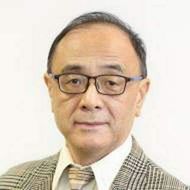[Party and the man] Ditching presidential term limit an exception not the rule
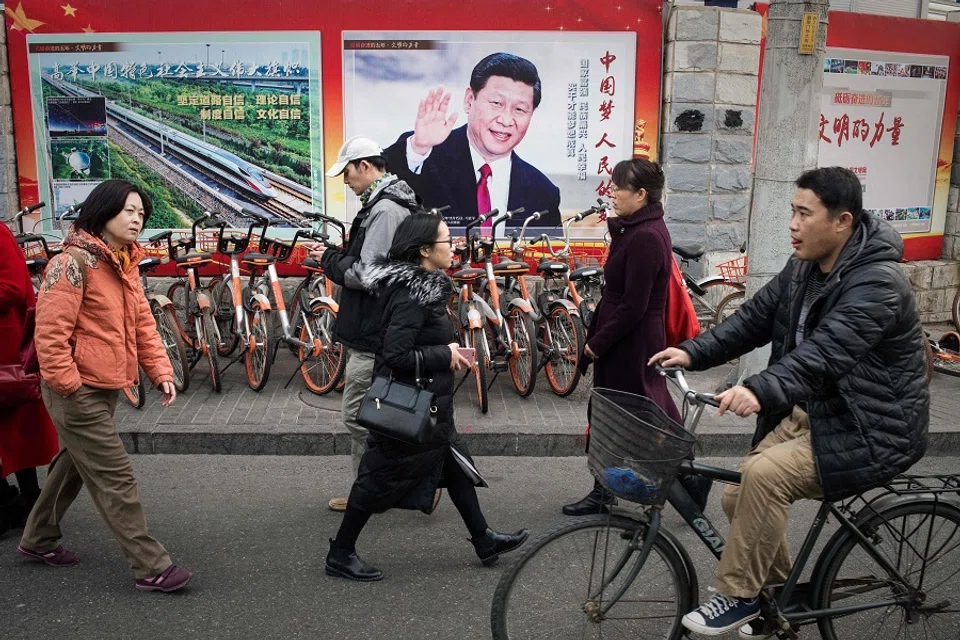
As the 20th Party Congress of the Chinese Communist Party (CCP) approaches, one key focus of attention will be on Xi Jinping breaking the rule established since Deng Xiaoping, for a two-term (ten-year) limit for the presidency.
For Western observers, this is the touchstone that differentiates a dictatorship from a democracy. According to America's former President Bill Clinton, it was the CCP's abolition of the term limit that caused US-China relations to take a nosedive, because to the West, this change signalled the party's descent into dictatorship and a return to Stalinism that was at odds with history.
But is that the only possible conclusion? Not necessarily. Based on how the developmental logic of Chinese politics unfolds, the current centralisation of power has a certain necessity to it.
... we have reason to believe that once the system-building project is complete, power succession in the CCP will return to the norm.
The historical necessity for the current centralisation of power
In order to ensure the continuity and steady progress of China's large-scale system-building, there is a real need for the supreme leader, as the main architect of the new system, to break the term limit rule for the time being.
An analogy can be drawn with how US President F. D. Roosevelt was given the mandate by the American electorate four consecutive times in the thick of the Great Depression and World War II. In order to maintain the necessary strength of leadership, Roosevelt broke from the tradition (established since George Washington) of not going beyond two terms of office.
In a similar way, that Xi Jinping's exception seems to have the party's acquiescence or even mandate has much to do with the critical juncture at which China's political development currently finds itself.
If so, we have reason to believe that once the system-building project is complete, power succession in the CCP will return to the norm. One of the reasons is that the party's apparatus has long settled into a rather robust cadre system, with set rules on everything from discipline inspection, style of conduct, performance reviews, selections for positions, bureaucratic seniority and career paths, to age and duration limits, as well as terms of office.
... Xi Jinping is exceptional in that he has shown tremendous determination, foresight and systemicity in approach. It appears that no one else in the current leadership team can match up as his replacement.
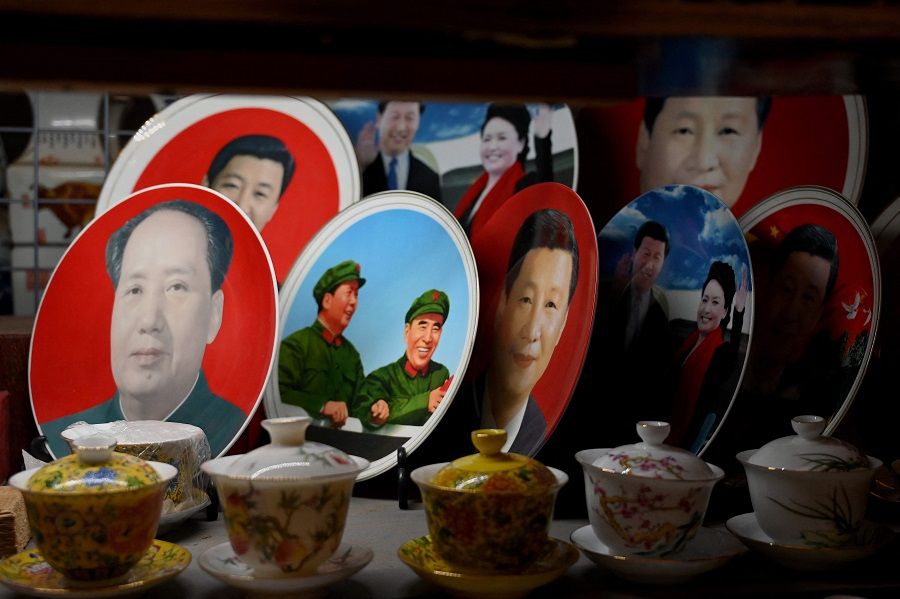
Back when Deng Xiaoping was pushing for the cadre system's reform and the appointment of younger cadres, the initiative did not apply to himself, for he was the main architect and driving force for it. His being the exception did not affect the consolidation and development of the new cadre system after his death.
In addition, let's remember that China's old system established in the Mao era was a continuation of Stalin's model, inclusive of its strengths and flaws. Deng Xiaoping's reform of this system was very much exploratory in nature, driven not only by upholding Deng's Four Cardinal Principles, but also by the strong pull of market capitalism and Western democracy. Consequently, we've seen the perennial bickering between the left and right and uncertainty with regard to the direction of the reforms.
It was Xi Jinping who put an end to such a situation. His mission in history is to lay down the guiding philosophy and institutional foundation for China's next phase of development. His is a role of a grand synthesiser. While any leader at the same juncture in time would pursue the same goal, Xi Jinping is exceptional in that he has shown tremendous determination, foresight and systemicity in approach. It appears that no one else in the current leadership team can match up as his replacement.
Not only do his large-scale anti-corruption efforts win him much favour from the general populace, his call for "unity of thought, unity of will, unity of programme, unity of action" for the sake of achieving national rejuvenation is in line with the party's tradition. These probably constitute important reasons for the party's approval of Xi.
The weakness of the leadership in the past had led to such a grim situation: In the topmost echelons, there was uncoordinated co-rule (described as "nine dragons exercising control over the waters"), with each honcho doing things their own way in their respective "territories".
In the higher and medium echelons, oligarchic monopolies were gaining prevalence, while at the bottom, some party-state establishments morphed into something akin to nefarious organised crime. Spread all over the body of the party was the abominable carbuncle known as corruption.
If China had gotten yet another apex leadership team that would stay weak and muddle on for ten more years, the future of that country would have been quite worrying.
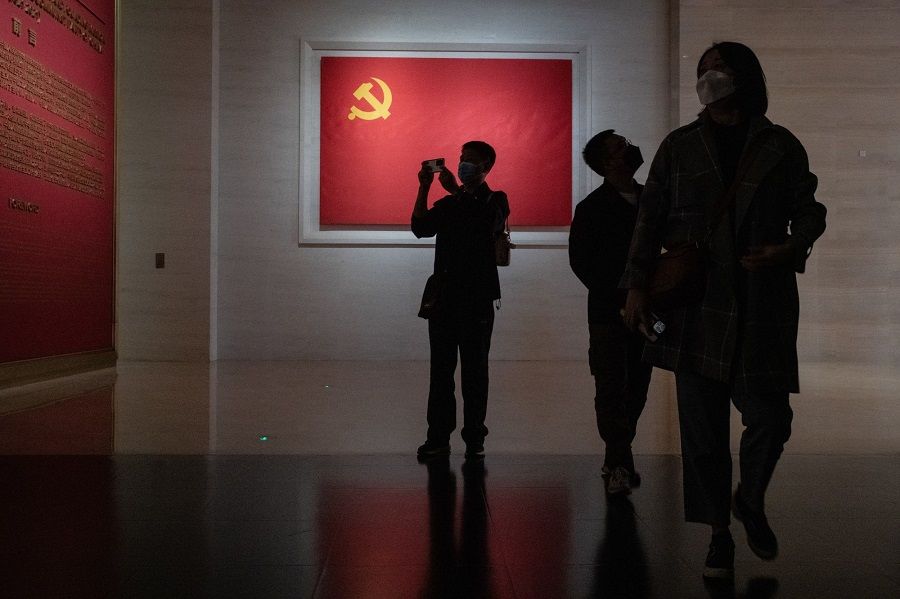
The rich-poor divide was comparable to that which plagued the capitalist countries. Exploitation and moral degradation and the shortage of trust were pervasive throughout society, and there was no gathering and growing of forces of justice in sight that could push back against all this. If China had gotten yet another apex leadership team that would stay weak and muddle on for ten more years, the future of that country would have been quite worrying.
Xi Jinping was hailed by Lee Kuan Yew as a politician with great fortitude comparable to Nelson Mandela. Regardless of whether the direction he takes is right or wrong, Xi is perhaps the figure called for at this juncture of history.
To make it in this system, one had to keep a low profile, cultivate favours from the higher-ups, and patiently bide one's time.
Characteristics of a post-revolutionary leader
After Deng Xiaoping, the CCP's pioneering generation that had fought to bring the Chinese regime into being gradually bowed out from the stage of history. Their successors, the ones to sustain the regime, began to take centre stage. The greatest difference between the two is in legitimacy and authoritativeness.
The leaders from the founding generation had one thing in common. Before rising to the apex, all of them had performed well on their own stages and garnered widely recognized achievements. Deng Xiaoping, for example, was famous for leading the Second Field Army (or the "Great Army of Liu and Deng", dubbed in recognition of him and Liu Bocheng), as well as being one of the main planners and commanders of the 1949 Yangtze River Crossing Campaign. After the party took over the country, Deng went on to gain renown as a competent administrator, and rose to be a representative figure for the "Liu-Deng line".
The giants of this generation each had their own bases of interpersonal networks woven through a long career, such that distinct "strongholds" had formed around them, so to speak. Even Mao Zedong had to respect these strongholds and take care to balance them against one another.
In contrast, the leaders of the post-revolutionary era are people methodically promoted through the ranks of the bureaucratic career ladder. They owe their positions more to the appreciation of the higher-ups than to their outstanding job performance.
Both Jiang Zemin and Hu Jintao were handpicked by Deng Xiaoping himself. Before his abrupt elevation to Beijing in 1989, Jiang was already planning his leisurely post-retirement life, when he would spend his days playing the erhu and singing Peking opera.
In the routinised party-state hierarchy, striving for outstanding achievement at work often backfires. For example, Bo Xilai did spectacular work in Chongqing, and yet he was ultimately stripped of all posts and sent to Qincheng Prison. To make it in this system, one had to keep a low profile, cultivate favours from the higher-ups, and patiently bide one's time.
Once reaching the top, they typically react in two ways: either immediately become puffed up in their glory, or proceed to consolidate power and command respect because they acutely feel the inadequacy of their authority and capabilities.
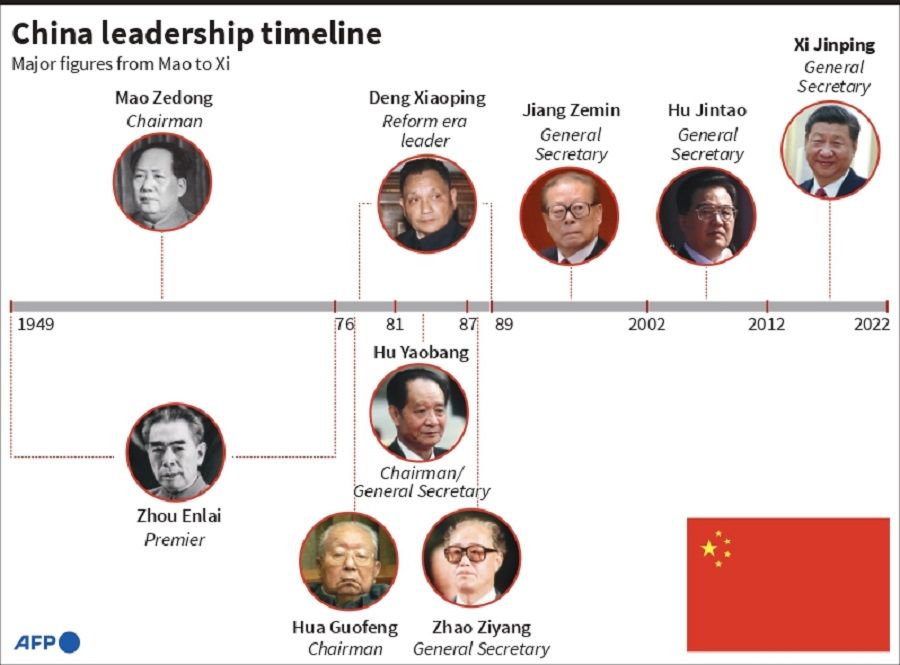
Thus, the politicians in the post-revolutionary age have not really been forged in the crucible of modern politics. As a result, on public occasions, they show a lack of eloquence and of the ability to think on their feet. For example, after Hua Guofeng came into power, he acted awkwardly at diplomatic events, even being unsure of where to place his hands. Brezhnev could not do without prepared scripts till the day he died. These individuals typically lack the skills and confidence to constructively interact with their opponent and have to resort to purge when faced with opposition.
Once reaching the top, they typically react in two ways: either immediately become puffed up in their glory, or proceed to consolidate power and command respect because they acutely feel the inadequacy of their authority and capabilities. Because they owe their promotions more to better luck than to greater accomplishment, they are full of insecurity.
The fact that "disparaging the party centre" is incorporated into the party constitution as a punishable violation of party discipline, and the ritualistic reiteration of the "Four Consciousnesses", "Two Upholds" and "Two Establishes", reflect not only the operating logic of the system but also a sense of insecurity in those at the top. These are certainly not a sign of a well-developed political civilisation.
The different ways that post-revolutionary leaders deal with their insecurity and lack of prestige can take China down any one of two completely different paths.
The foundation thus laid may give rise to an all-new system, whereby a new, highly inclusive and legally binding compact is to be forged on the basis of a common understanding shared across the whole populace...
What lies ahead for the country: two possibilities
The first way is to bolster the authoritativeness of the formal institutions comprehensively, thereby transforming the rule of man to the rule of law, and the political culture from one that is "relationship-based and not principle-based" to one that is "task-oriented and not connection-oriented".
In this regard, Xi Jinping's Central Committee has put in a huge amount of work over the last ten years. The Central Comprehensively Deepening Reforms Commission (formerly the Central Leading Group for Comprehensively Deepening Reforms), which meets monthly, has approved more than a thousand reform measures and policies.
The coverage of these reforms and policies ranges from momentous matters like the party committee's deliberation and decision-making rules and procedures, down to minor set-ups like the titles and rank of auxiliary police officers. Formal institutions and explicit rules have been developed for almost every domain.
As part of the Four-Pronged Comprehensive Strategy, "comprehensively establishing law-based governance" reaches into so many different facets, including administrative, environmental and social governance, as well as national legislation and the setting of the party's internal rules.
If China succeeds in this regard, it could become the first country to integrate democracy, rule of law and good governance...
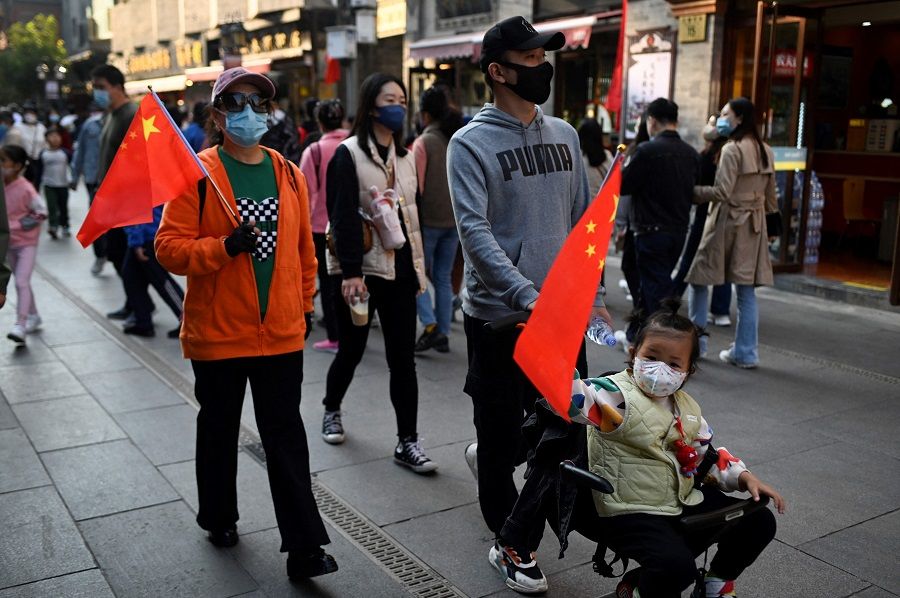
Institution-building on such a grand scale and in such a systematic way is unprecedented. The foundation thus laid may give rise to an all-new system, whereby a new, highly inclusive and legally binding compact is to be forged on the basis of a common understanding shared across the whole populace, allowing everyone in all walks of life a role to play and a niche to belong, with rights and duties clearly specified and secure.
The government would be highly effective in decision-making and execution, respond nimbly to the demands of the people, and be able to come up with timely, forward-looking strategies vis-à-vis changes in domestic and international situations.
For this to happen, the powers that be must not only keep pace with the times but also recognise and accept the diversity of interests in society and the fact that the majority of the Chinese people (even members of the CCP) are not Marxists. An orthodox theory that is forcibly imposed on everyone has to be replaced by a constantly renewed whole-populace compact.
To accommodate such complexity and diversity in such a large nation requires extensive consultations and discussions, through which a common understanding would be reached and constantly renewed. This in turn requires a well-developed system and mechanisms of "whole-process people's democracy" that is effective, reliable, authoritative and complete with explicit procedures.
If China succeeds in this regard, it could become the first country to integrate democracy, rule of law and good governance, ushering in the Third Age of human political civilisation, following theocracy-monarchy and democracy-republicanism. Meanwhile, greater authority in institutions also helps to alleviate the insecurity of office holders.
... the other possible path represents a very real danger, for it involves a fundamental weakness in human nature: the lack of resistance to the corruption of power.
What lies ahead for China at the end of this path will be the true salvation of the Chinese nation, which will set a new trend for the whole world. In stark contrast, the other possible path represents a very real danger, for it involves a fundamental weakness in human nature: the lack of resistance to the corruption of power.
Power can change a person completely. A Chinese proverb accuses Wang Mang, the Han dynasty's infamous usurper, of acting "with humility and reverence only before the usurpation". It does not however prove that Wang had been acting with insincerity before he took over the imperial throne. Rather, it is more likely that power turned him into a different person.
In a similar way, some of the CCP's leading cadres used to show fine qualities like the spirit of solidarity and cooperation, humility, cautiousness, composed patience and so on. However, such virtues evaporate once they ascend to high places. They become unrestrained, domineering and impervious to good counsel.
While people may not have sufficient reasons to doubt the sincerity behind personal statements like "I shall be selfless in total devotion to serving the people", they are surely justified at all times to fear that their leaders, whoever they are, might succumb to the corruption of power and, with it, an endless thirst for more power.
Such concentration of power far exceeds that traditionally enjoyed by the Chinese emperor.
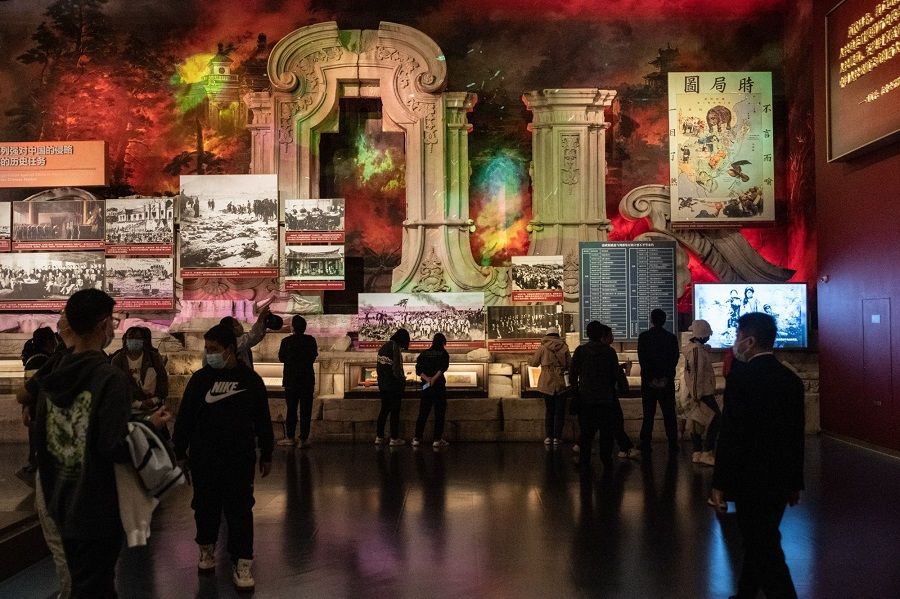
That's because China's unitary system provides fertile ground for such degeneration. Under this system, anyone who ascends to power can gradually take control over power over all major areas - over the military, judiciary and law enforcement, propaganda, finances, human resources etc., thereby making it impossible to bring him down. Such concentration of power far exceeds that traditionally enjoyed by the Chinese emperor.
Some leaders could go beyond just keeping all the crucial powers to themselves. They might not be willing to delegate even the minor powers, fearing that opportunities given to others could breed challengers to their own power and position. The longer one holds power, the further one's judgement deteriorates. Russia's Vladimir Putin is the latest case in point, especially in his decision to invade Ukraine.
As pointed out earlier, in the post-revolutionary era, all the leaders of the same cohort are more or less the same. Those who got promoted are not necessarily more capable than others, nor do they have more dazzling political achievements. Once the above-outlined method to amass power becomes routine, anyone who rises to the top normally henceforth can repeat the trick and play emperor for their own gratification, while putting the country and its people through the mill. What's at stake here is China's political future for many generations to come.
... one important issue for China's political reform is eliminating the institutional foundation that makes the route to absolute power possible.
The most important issue in system-building
In view of the foregoing, one important issue for China's political reform is eliminating the institutional foundation that makes the route to absolute power possible. Without achieving this, all other institutions put in place, law or party rule - however excellent their design - can be nothing but a pointless fixture before unlimited power.
The subjective self-control of the leaders themselves cannot be relied on, because the temptation they face is a world-class challenge. Only a small handful of people in the entire history of the world may have met such a challenge, such as America's founding President George Washington, the legendary virtuous sovereigns Yao and Shun from China's high antiquity. What the CCP needs to overcome is not just the "dynastic cycle" in Chinese history, but also the cycle of dictatorship-resistance-dictatorship commonly seen in the Third World in our time.
There are a few things that the CCP should do once major institution-building is complete. Firstly, it should promptly reinstate the term limit, design reliable procedures for determining any succeeding leader and leadership team, set these down in the party and national Constitution, and have a specialised agency take charge of the pertinent oversight and execution. Secondly, the party should set up a mechanism (at least at the Central Committee level) for recalling or deposing the supreme leader, and hold a vote of confidence regularly as a check. Thirdly, the CCP should revive the explorations of intra-party democracy as a way to promote people's democracy at large.
For Lianhe Zaobao's special reports on the 20th Party Congress, click here.
Related: [Party and the man] A third term is just the beginning: Xi Jinping's main challenges | Xi Jinping's position as 'the people's leader' firm ahead of 20th Party Congress | Will the CCP remove the unofficial age limit for its top leadership? | [Party and the man] Factions and fence-sitters in Xi Jinping's China | The Taiwan Strait crisis has strengthened Xi Jinping's position
